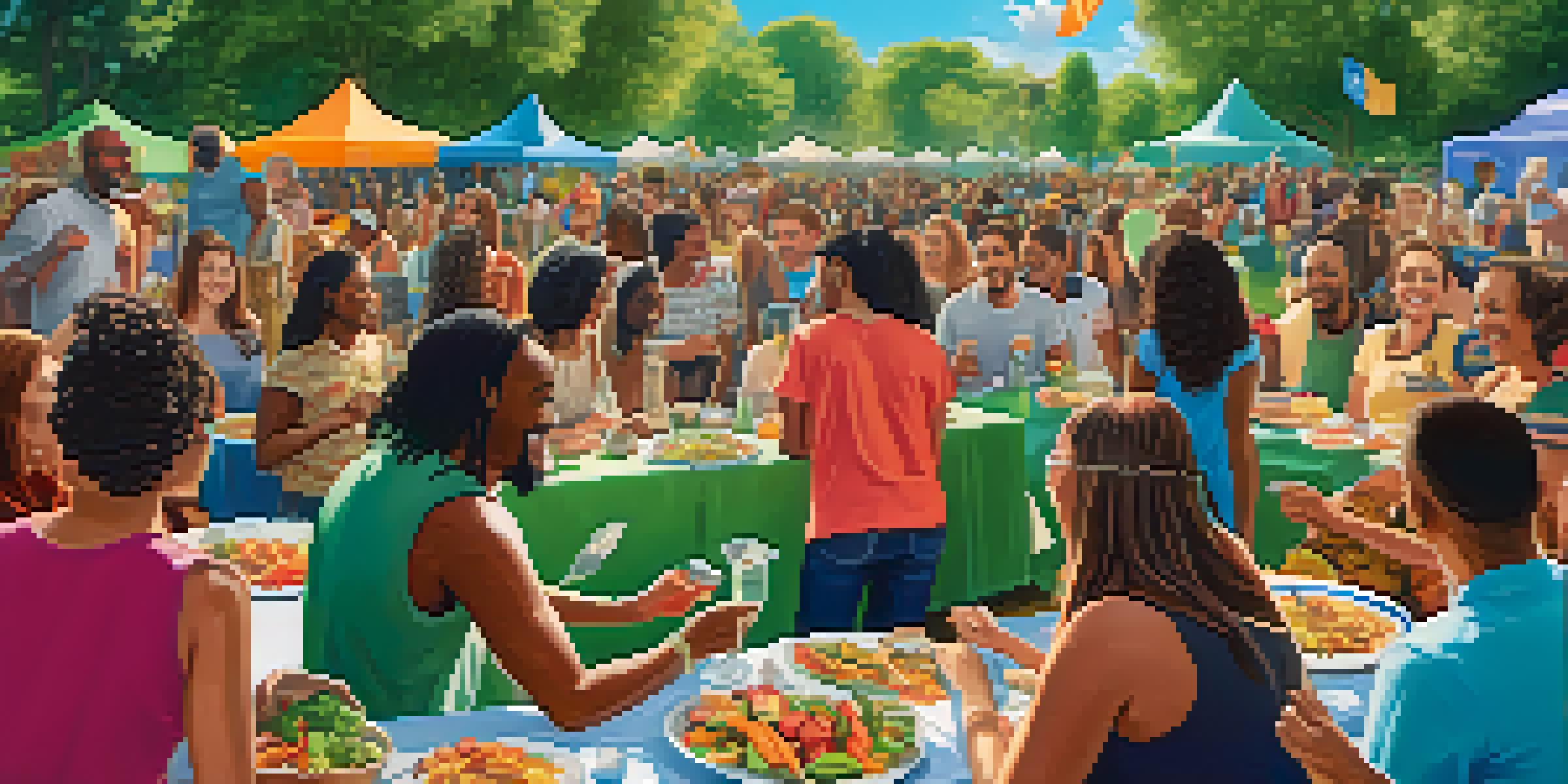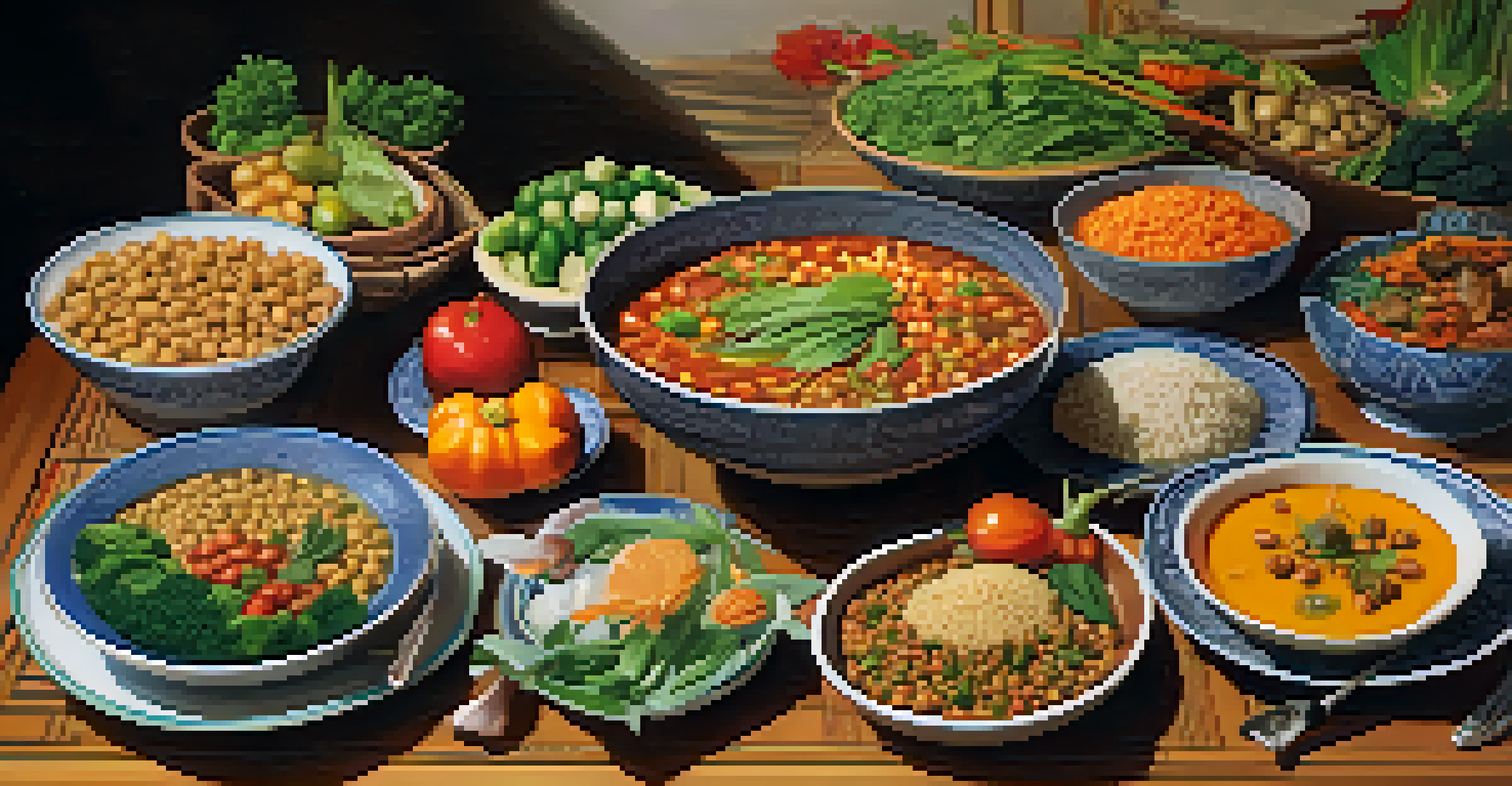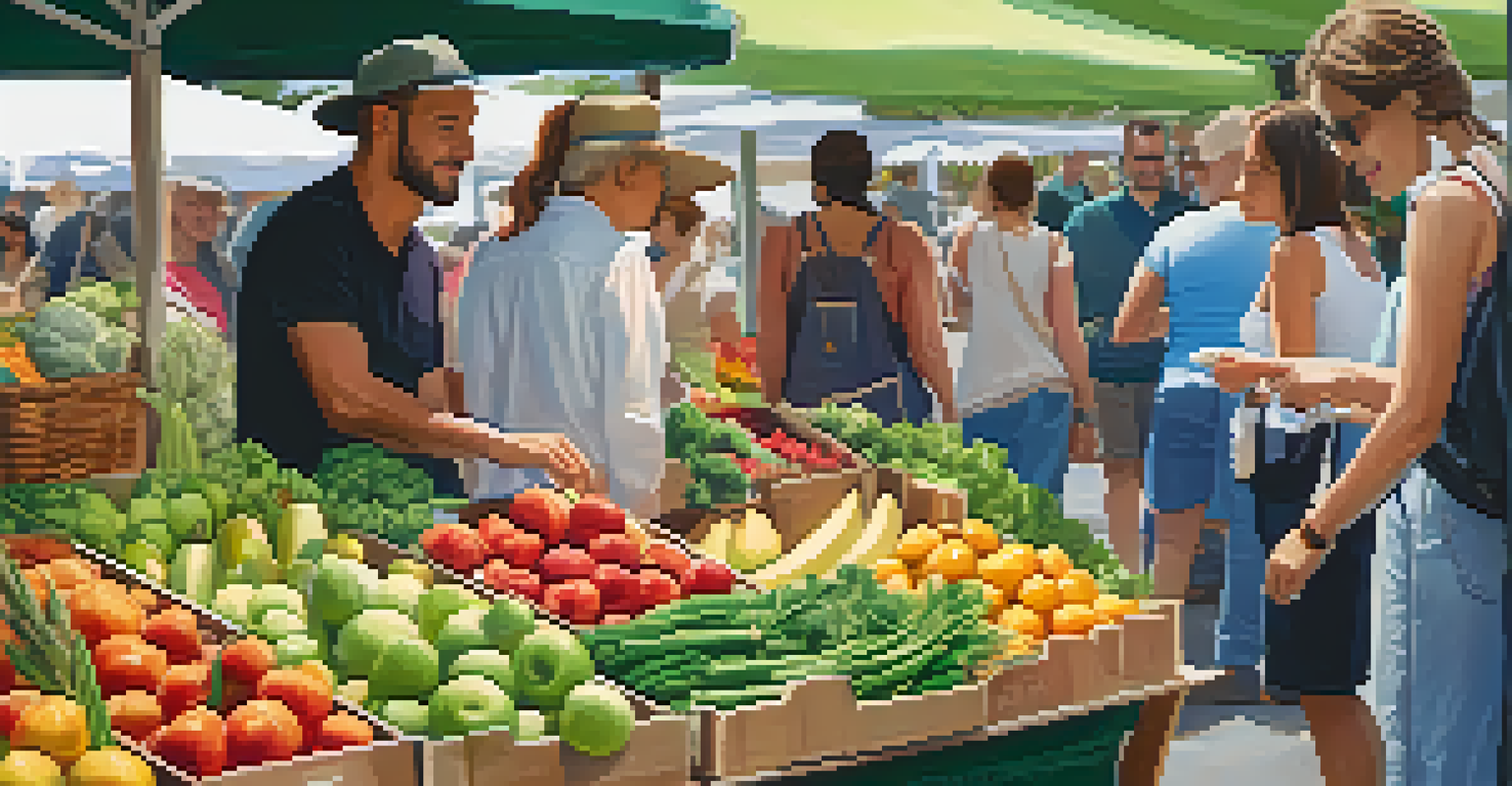Intersectionality in Veganism: Voices from Marginalized Groups

Understanding Intersectionality and Veganism
Intersectionality is a framework that examines how various social identities, such as race, gender, and class, intersect and impact individuals' experiences. In the context of veganism, it highlights the importance of recognizing that not everyone approaches this lifestyle from the same perspective. This understanding is crucial in fostering inclusivity within the vegan movement.
Veganism is a movement that cannot be separated from the struggles for social justice, equity, and the fight against oppression.
For instance, a Black woman might experience veganism differently than a white man, due to the societal pressures and cultural backgrounds they navigate. By acknowledging these differences, advocates can create a more welcoming environment that respects diverse voices. This intersectional approach enriches the vegan discourse by showcasing the unique challenges faced by marginalized communities.
Ultimately, embracing intersectionality in veganism allows for a broader understanding of food justice, which encompasses not just animal rights but also human rights. By exploring these interconnected issues, we can better support those who are often left out of the conversation.
Voices of Marginalized Groups in Veganism
Marginalized groups, including people of color and low-income communities, have unique perspectives on veganism that often go unheard. These voices can shed light on the systemic barriers they face when trying to adopt a vegan lifestyle, such as access to affordable plant-based foods and cultural relevance in vegan diets. Highlighting these stories is essential for creating a more equitable vegan movement.

For example, many Black and Latino communities have strong ties to traditional diets that may not align with mainstream veganism. By respecting and incorporating these cultural practices, the vegan movement can become more inclusive. This means recognizing that veganism isn't a one-size-fits-all approach and that diverse culinary traditions can coexist within the movement.
Intersectionality Enriches Veganism
Embracing intersectionality within veganism fosters inclusivity by recognizing the diverse experiences and challenges faced by marginalized communities.
Listening to these voices can also empower marginalized individuals to advocate for their rights within the vegan community. By sharing their experiences, they can inspire others to challenge the status quo and push for a more inclusive dialogue.
Barriers to Veganism for Marginalized Communities
Many marginalized communities face significant barriers when it comes to embracing veganism. These can include economic constraints, lack of access to fresh produce, and cultural disconnections from plant-based diets. Understanding these barriers is vital for advocates who aim to promote veganism across diverse populations.
Intersectionality is not just about recognizing differences; it’s about understanding how they shape our experiences and our fight for justice.
For instance, in food deserts—areas with limited access to affordable and nutritious food—plant-based options may be scarce. This makes it challenging for individuals to adopt a vegan lifestyle, even if they are interested. By recognizing these systemic issues, the vegan community can work towards solutions that address these disparities.
Furthermore, the perception of veganism as a privilege can alienate those who feel that adopting such a lifestyle is out of reach. By actively addressing these barriers, we can create a more supportive environment that empowers everyone to explore veganism.
Cultural Perspectives Within Veganism
Cultural perspectives play a significant role in how individuals perceive and practice veganism. Different cultures have varying relationships with food, animals, and nature, which can influence dietary choices. By exploring these cultural nuances, we can foster a deeper understanding of veganism that respects diverse backgrounds.
For example, many Indigenous communities have long practiced forms of sustainable living that align with vegan principles, emphasizing respect for the land and animals. Recognizing these practices can bridge the gap between traditional diets and modern veganism, making the movement more relevant to diverse audiences. It’s essential to honor these cultural practices rather than impose a singular definition of veganism.
Barriers to Veganism Must Be Addressed
Marginalized groups often encounter significant barriers, such as economic constraints and limited access to fresh produce, that hinder their ability to adopt a vegan lifestyle.
By embracing cultural perspectives, the vegan movement can become a richer tapestry of ideas and practices, fostering a sense of belonging among those who may feel excluded. This approach not only supports inclusivity but also enhances the overall narrative of veganism.
The Role of Activism in Intersectional Veganism
Activism is a powerful tool in advocating for intersectional veganism, as it raises awareness of the unique challenges faced by marginalized groups. Grassroots organizations often work to uplift these voices, ensuring their stories are heard in the broader vegan conversation. This activism is crucial for driving change within the movement.
For instance, campaigns that focus on food justice and accessibility help to highlight the intersection of social justice and veganism. By advocating for policies that promote equitable access to plant-based foods, activists can address systemic inequalities that prevent marginalized communities from adopting vegan diets. This holistic approach is key to fostering a more inclusive movement.
Moreover, intersectional activism encourages collaboration between various social justice movements, creating a united front for change. By working together, these movements can amplify their efforts and create a more significant impact on society as a whole.
Creating Inclusive Spaces in Vegan Communities
To build a more inclusive vegan community, it’s essential to create spaces where diverse voices can thrive. This can be achieved through workshops, discussions, and events that welcome individuals from all backgrounds. Encouraging dialogue allows for the sharing of experiences and the dismantling of stereotypes within the vegan movement.
For example, hosting events that feature speakers from marginalized communities can provide valuable insights into their unique experiences with veganism. This not only enriches the conversation but also empowers these individuals to take on leadership roles within the community. Inclusivity fosters a sense of belonging, making it easier for everyone to engage with veganism.
Activism Drives Inclusive Change
Intersectional activism plays a vital role in raising awareness and promoting equitable access to plant-based foods, ultimately enhancing the vegan movement.
Additionally, creating resources that cater to different cultural backgrounds can help bridge the gap between traditional diets and veganism. By respecting and integrating these diverse culinary practices, the vegan movement can become more approachable and relatable.
The Future of Intersectional Veganism
The future of intersectional veganism lies in its ability to adapt and grow through the inclusion of diverse voices and experiences. As more individuals from marginalized communities engage with veganism, the movement can evolve to reflect a broader understanding of food justice. This evolution is essential for ensuring that veganism remains relevant and accessible to all.
By prioritizing intersectionality, the vegan movement can develop strategies that address the unique challenges faced by different communities. This could mean advocating for policy changes, expanding access to plant-based foods, and promoting culturally relevant vegan options. Ultimately, these efforts can lead to a more equitable and sustainable future.

As we look ahead, it's crucial to continue fostering conversations around intersectionality in veganism. By doing so, we can ensure that the movement is not only about animal rights but also about social justice, equity, and inclusivity for all.